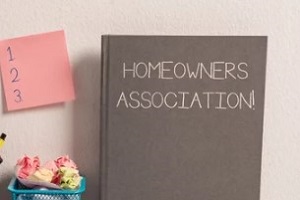 In California, homeowners associations (HOA) are one of the most popular ways to ensure that your home and community retain value and make a good first impression. People choose to live within neighborhoods with a homeowners association. because they enjoy the many benefits, such as well-maintained communal areas and the guaranteed consistency and visual appeal of their neighbors’ homes and properties.
In California, homeowners associations (HOA) are one of the most popular ways to ensure that your home and community retain value and make a good first impression. People choose to live within neighborhoods with a homeowners association. because they enjoy the many benefits, such as well-maintained communal areas and the guaranteed consistency and visual appeal of their neighbors’ homes and properties.
However, in addition to the standard fees imposed by HOAs, California law grants the HOA governing body the authority to levy certain additional fees in certain circumstances. Here is what you need to know about special assessments, including how they work and how the law limits their use.
What Is an HOA Special Assessment?
A special assessment is a fee (not inclusive of the standard HOA fee that is paid on a regular basis by community members) that the governing body can charge in order to cover emergency situations or large projects that impact the entire community. For instance, if a storm destroys the community clubhouse within the HOA, a special assessment may be levied to recover extra money to be used to repair or rebuild the clubhouse.
Special assessments are typically applied to each member of the community, regardless of whether they are directly affected by the event. This ensures that the payments are equitable and is part of the responsibility of participating in an HOA.
What the California Law Says About HOA Special Assessments
Special assessments can grant the HOA governing body more money, but the number of events the money can be used for—as well as how that money is acquired—are strictly limited by California law.
This prevents abuse of the special assessment system and keeps power in the hands of community members rather than allowing HOA leaders to fleece residents at their choosing. In California, the law places restrictions on HOA special assessments, including:
Limitation on Assessment Total
 No matter how expensive a repair may be, the HOA’s governing body cannot levy a special assessment that exceeds 5% of the year’s gross fiscal budget according to California law.
No matter how expensive a repair may be, the HOA’s governing body cannot levy a special assessment that exceeds 5% of the year’s gross fiscal budget according to California law.
This stipulation prevents residents from being charged astronomical fees that they cannot afford and that threatens their financial stability unpredictably. This 5% is spread across all residents in the community; in other words, it is not each resident who is paying 5%, it is the community that is paying 5% split equally among all members.
Quorum on Fiscal Approval
Many types of repairs can be expensive, and 5% may not be sufficient to cover the costs. In these situations, the law enables HOA governing bodies to take special assessments to a vote. If a quorum (that is, more than 50%) of members agree to pay more than the 5%, the special assessment may proceed at this greater amount.
Including this provision ensures that residents have a means to voluntarily better their community or help to fund expensive projects, such as major road repair, without threatening their financial security.
Qualification of Spending
Not all types of spending qualify to be funded using special assessments. Capital improvements are one of the only ways in which special assessment money can be used. A capital improvement under California law is considered to be something that is mandatory for the community, is a substantial improvement to a common area, or provides a significant improvement to the materials used to build elements of the community.
All of these facets benefit community members and are intended for longevity and improved quality of use while simultaneously preventing HOA governing individuals from using resident money to fund personal projects that others are not interested in.
Member Participation in HOA Special Assessments
 In rare cases, California law grants that a special assessment can be levied against an individual instead of the entire community. This is only permitted when that member has, on their own, caused substantial damage to a common area or other feature.
In rare cases, California law grants that a special assessment can be levied against an individual instead of the entire community. This is only permitted when that member has, on their own, caused substantial damage to a common area or other feature.
The members themselves, as well as any of their family members or tenants, are all treated as one household. The HOA may require a special assessment paid only by that member in order to recover the cost of these damages and repair what was broken for the benefit of the community as a whole.
Get Help with HOA Issues from a Legal Team
HOAs must operate under strict laws in California, but this does not guarantee that they will do everything correctly when using special assessments. If you are facing a dispute with your HOA, it is wise to consult with a legal team that is experienced in HOA conflict.
The professionals at Lehr Law get to know each client and their story personally to offer personalized guidance and representation for the best outcome in each case. Contact Lehr Law to schedule a consultation and resolve the conflicts you are experiencing with your HOA.
